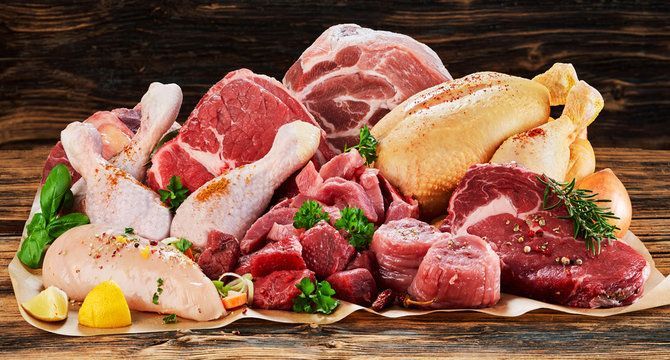Why you need more red meat
Red meat is a superfood
In the realm of nutrition, red meat often finds itself at the center of heated debates. While some advocate for its reduction or elimination from the diet, emerging evidence and nutritional science suggest that incorporating more red meat can be beneficial for many individuals. Red meat, including beef, lamb, and pork, is a rich source of essential nutrients that play a critical role in maintaining overall health and well-being. Here’s why you might need more red meat in your diet.
1. Rich Source of High-Quality Protein
Protein is a fundamental building block for muscle growth, repair, and overall bodily function. Red meat provides a high-quality, complete protein that contains all the essential amino acids necessary for the body. For those engaged in regular physical activity or those seeking to maintain muscle mass as they age, red meat offers an excellent source of the protein needed to support these processes.
2. Essential Vitamins and Minerals
Red meat is packed with essential vitamins and minerals that are often lacking in modern diets. These include:
- Iron: Red meat is one of the best sources of heme iron, which is more easily absorbed by the body compared to non-heme iron found in plant-based foods. Adequate iron levels are crucial for preventing anemia and maintaining energy levels.
- Vitamin B12: Vital for nerve function and the production of DNA and red blood cells, vitamin B12 is naturally found in significant amounts in red meat. Deficiency in this vitamin can lead to severe neurological issues and fatigue.
- Zinc: Important for immune function, wound healing, and DNA synthesis, zinc is abundantly present in red meat. It helps the body to grow and develop properly, making it especially crucial for children and pregnant women.
- Selenium: An antioxidant that helps protect cells from damage, selenium also supports thyroid health and immune function. Red meat provides a good source of this trace mineral.
3. Boosts Physical Performance
Red meat’s high protein content and abundance of bioavailable iron contribute to improved physical performance. Athletes and physically active individuals may find that red meat helps to enhance muscle recovery and boost endurance. The presence of creatine, a compound naturally found in red meat, further supports muscle strength and performance.
4. Supports Cognitive Function
Iron and vitamin B12, both found in red meat, are crucial for brain health. Iron deficiency can lead to cognitive impairments, while adequate vitamin B12 levels are essential for maintaining healthy brain function. Regular consumption of red meat can help ensure that these nutrients are available in sufficient amounts to support cognitive performance and prevent mental decline.
5. Satiation and Weight Management
Including red meat in your diet can contribute to feelings of fullness and satisfaction. The high protein content helps to curb hunger, reduce appetite, and support weight management efforts. When paired with a balanced diet and regular exercise, red meat can be part of a strategy to achieve and maintain a healthy weight.
Addressing Common Concerns
While red meat offers numerous health benefits, it is important to address common concerns associated with its consumption. Moderation is key, and choosing lean cuts can help mitigate potential risks related to saturated fat intake. Additionally, incorporating a variety of protein sources, including plant-based options, can provide a balanced approach to nutrition.
Conclusion
Red meat, when consumed as part of a balanced diet, provides a wealth of nutrients that are essential for maintaining optimal health. From high-quality protein to vital vitamins and minerals, red meat supports muscle function, cognitive health, and overall well-being. As with any dietary choice, moderation and variety are crucial. Embracing the nutritional benefits of red meat can be a valuable component of a healthy lifestyle.











